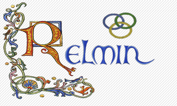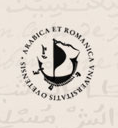MEDhis is a consortium of scholars in the field of Mediterranean studies whose research centers on the social, cultural, artistic, and archaeological analysis of Western Christian, Islamic, Jewish and Byzantine interaction in medieval and early modern times, and in which the Mediterranean is accorded its widest possible geographic definition. MEDhis is particularly interested in methodological and historiographical concerns related to all forms of exchange and its dynamics within the Mediterranean, the transmission of knowledge in the formation and transformation of its political, ideological and aesthetic languages, the role of institutions in the development of societies, and the agency of artifacts in religious, political, social, and economic contexts.
PIMIC (Power and Institutions in Medieval Islam and Christendom) is a collaborative project by a team of western medievalists, Arabists and Byzantinists, partners from prestigious academic institutions and two private sector companies. PIMIC will coordinate scholarly work at pre-and post-doctoral levels, addressing particular questions from different perspectives, but integrated within a common and ambitious research programme on a vital historical question: ‘why did certain sorts of institutionalisation and institutional continuity come to characterise government and society in Christendom by the later Middle Ages, but not the Islamic world, whereas the reverse might have been predicted on the basis of the early medieval situation?’
Knowledge, heresy and political culture in the Islamic West (8th-15th centuries), it is an Advanced Research Grant – European Research Council, PI: Maribel Fierro. How are religious and non-religious knowledge linked to social and political processes such as those of inclusion and exclusion? How does knowledge contribute to the formation of a political culture? In the Western Mediterranean there were two specific moments when the political projects of rulers were closely intertwined with ambitious cultural programmes: the Almohad caliphate (12th-13th centuries) and the reign of Alphonso X the Wise (r. 1252-1284). It does not seem possible to study separately these two episodes of ‘political and cultural revolution’, in the same way that it has been for long accepted the intimate relationship between the Fatimid caliphate and the reign of the emperor Frederic II (1220-1250).
Arquivo Digital de Escrita Quotidiana em Portugal e Espanha na Época Moderna
O Projeto P.S. (Post Scriptum) tem como finalidade recolher e publicar cartas particulares portuguesas e espanholas, escritas durante a Idade Moderna (do século XVI ao início do século XIX) por pessoas pertencentes a diferentes estratos sociais. Os documentos, na sua maioria inéditos, foram conservados como prova instrumental no interior de processos de tribunais civis e religiosos. A publicação das cartas será feita on-line e incluirá: reprodução de cada fac-símile; transcrição do respetivo texto e a sua versão modernizada (na língua original e em inglês); anotação morfológica e sintática; classificação histórico-lingüística; contextualização social e situacional dos enunciados
The Center for the Study of Conversion and Inter-Religious Encounters is a group under the scientific management of Prof. Harvey Hames of the Ben-Gurion University of the Negev, consisting of researchers from the Ben-Gurion University of the Negev, Bar-Ilan University, the Hebrew University, the Open University and University of Haifa. Conversion from one religion to another is a significant moment, not only for the person converting, but also for the religious community a bandoned and the one adopted. Historical materials contain records of thousands of inter-religious conversions (individual as well as mass conversions), which can shed light on religious, social, political and legal phenomena relevant for understanding how religious communities function, how they deal with questions of identity and how and why they erect boundaries. Conversion can also illuminate the internal politics and structures of a religious community, how they interact with those perceived as “others”, as well as the dynamics of minority-majority cultures living side by side. This I-CORE will provide an analytical framework for examining political, social, religious and legal issues, communal and religious boundaries, the transfer of knowledge, and the ability to compare the process of conversion over long periods of time and between different geographical settings.
RELMIN (The Legal Status of RELigious MINorities in the Euro-Mediterranean World, 5th-15th centuries) is a research project mobilising an international team based at the Maison des Sciencies de l'Homme Ange-Guépin in Nantes. RELMIN collects, publishes and studies legal texts defining the status of religious minorities in pre-modern Europe, offering a wide-ranging outlook onto the debates in 21st century European societies, where increasing trends to secularisation as well as the simultaneous reaffirming of religious identities are potential sources of conflict. European religious diversity has its roots in the practice of medieval societies. Medieval European polities, Christian and Muslim, granted protected and inferior status to selected religious minorities. The study of the legal sources of Medieval religious cohabitation shows that medieval societies, like our own, underwent constant change and that religious cohabitation, while of course not always peaceful, has been the rule rather than the exception in European history. RELMIN is building a database of legal texts, a new major interdisciplinary research tool on the legal status of religious minorities in medieval Europe, and is organising a series of workshops, seminars and an international conference through the period 2010-2015.
Seminario de Estudios Árabo-Románicos (SEAR) es un grupo de trabajo de la Universidad de Oviedo, constituido en torno al área de Estudios Árabes e Islámicos, que está integrado por profesores de distintas especialidades y departamentos y por otros investigadores asociados. Tiene por objetivo el estudio de las relaciones, contactos e influencias lingüísticas, literarias y textuales entre el dominio árabe y las lenguas romances. Se da así continuidad a una tradición docente e investigadora de la universidad ovetense orientada en principio a los textos aljamiado-moriscos y extendida ahora también a otros campos fronterizos de la Filología Árabo-Románica. El SEAR desarrolla proyectos y trabajos de investigación en los ámbitos propios de la Romania Arabica y de su contexto histórico-cultural, a la vez que promueve actividades académicas (congresos, cursos, conferencias), así como tareas de recopilación bibliográfica y documental.
Pouvoir politique et Conversion religieuse (Antiquité – période moderne). Alors que de nombreux travaux sont consacrés aux itinéraires de convertis, à l’activité missionnaire des institutions religieuses ou encore aux facteurs sociologiques de la conversion, Conversion/ Pouvoir et religion s’intéresse aux variations du regard et de l’attitude du pouvoir politique face aux conversions religieuses. Notre constat de départ est que le versant proprement politique de la conversion religieuse se trouve souvent absorbé par d’autres objets connexes tels que la coexistence entre les grandes religions ou les identités confessionnelles. La conversion religieuse est ici appréhendée non pas comme une expérience personnelle de métamorphose intellectuelle ou spirituelle, mais comme un changement visible d’adhésion à un groupe ou à un mouvement se définissant comme une religion, que ce changement concerne un individu ou un groupe. On considère les religions comme représentations du monde et comme systèmes normatifs portés par des structures d’organisation spécialisées. Par pouvoir politique, on entend ici toute expression d’autorité et d’organisation de la communauté civique, à des échelles diverses.







